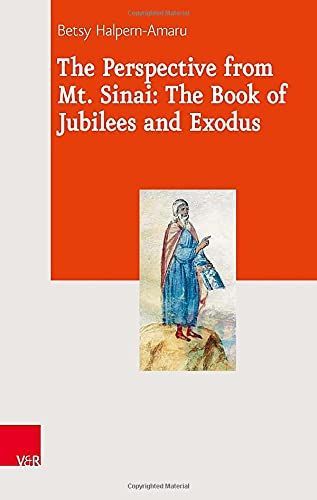
The Perspective from Mt. Sinai: The Book of Jubilees and Exodus
Although termed “the little Genesis”, the Book of Jubilees is significantly engaged with Exodus. It reworks key Exodus narratives, develops modules of Exodus law, and highlights Exodus motifs. The most fundamental connection to Exodus is the grounding of the two narrational structures of Jubilees in the scenario of Moses receiving a revelation on Mt. Sinai. In the frame an anonymous narrator develops the Mt. Sinai setting of the work. In the body an angel employs that setting as the present-time pivot for a retrospect that moves backward and forward in time.Focusing on the intersection of structure and content, the study explores the relationship between the retrospective design of the angel narration and the exegesis. The approach is a literary one that treats Jubilees as a unitary text that may reflect the work of a single author or of a final editor. The analysis draws particular attention to manipulations of temporal and textual perspective that transform Exodus narratives, facilitate the hermeneutical elaborations of Exodus law, and effect cohesion in the revelation that is the Book of Jubilees.Halpern-Amaru’s study makes a significant contribution to our understanding of biblical interpretation in Second Temple Judaism. For example, the reading of the Jubilees narrative of the exodus as a revelation of how God uses His heavenly forces, i.e., Mastema and his demons as well as the angels of the presence, on behalf of Israel, has implications for the understanding of strategies that temper dualism in Second Temple Judaism.